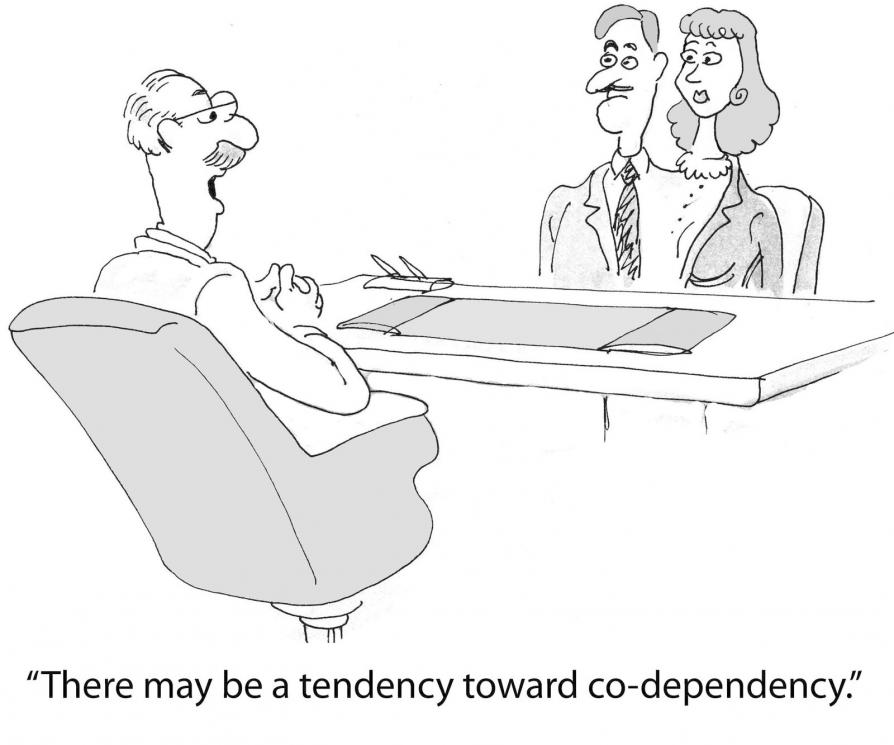If you listen carefully to most popular love songs out there, you might notice that it isn’t love many of them are referring to, but codependence!
Not letting go— loving someone without any regard for the self and not being able to survive in someone’s absence is well and good in a ballad but really, does any of that sound healthy?
In truth, there is a line between codependence and being simply interdependent (which is healthy). Unfortunately, for most people, the lines between love and co-dependence may be blurred, further, even on finding out you might lean to the codependent side, what do you do about it?
How to be Less Co-Dependent
If you’re someone who has realized you’re codependent chances are, you want to work out a healthier way to engage with those you are intimate with. Here are some things you can try out in order to gently move to a healthier position and one of less codependence!
Boundaries Help
When we buy a new home, start a new job or purchase a car or piece of property, there are terms and conditions to adhere to. Contracts are signed and in a sense, very clear boundaries are set. Boundaries keep both parties in the transaction safe and ensure positive streamlining of whatever follows.
The funny thing is, though personal relationships are just as significant as any massive purchase, we forget to place boundaries when getting into things. The result in some cases is losing ourselves to the codependent relationship entirely.
Placing gentle boundaries is extremely helpful. These may include allotted time apart, room to pursue personal interests and the permission to have social lives independent of each other among others. Other examples may include not dumping on each other at the end of a bad day or having our moods dependent on some kind of effort from the other involved. Think about what kind of boundaries make sense to you and place them accordingly.
Don’t Get Roped In
When it comes to codependence it takes two to tango. There may be times when one individual tries to move to a healthier engagement dynamic but the other subconsciously keeps roping them into a codependent one. Consistent overstepping of boundaries and making the other feel guilty as a means of getting what is desired are examples of this.
If you feel your partner keeps roping you back into a codependent dynamic, be gentle but try to stay firm on the boundaries you have placed. Don’t get roped in.
Connect with Yourself
Sometimes, we find it easier to be codependent and become enmeshed in another because our own sense of self is so weak. If you feel this is the case, connect with yourself and your own efficacy. Figure out what you like doing, get comfortable in your own company, learn how to have a good time without the other and internalize the belief or notion that you’re complete even by yourself!
The more you become comfortable in your own skin, the less you will derive your sense of identity and worth from the other!
Live a Little
Nobody said being in a relationship meant that you had to stop living. Sometimes when we have little going on in our own lives, we latch on to that of another. As a result, we can’t handle it when they have something keeping them occupied, which is unhealthy.
A great way to be a little less codependent is to focus on your own life for a bit. Live a little. Work on your career, take up a hobby, find a group of people to hang with apart from your partner or significant other – the possibilities are limitless.
Get Help
Sometimes despite all our efforts, we might find it difficult and a little more than challenging to simply break patterns of behavior we have been stuck with for so long. If you feel this is the case with you and codependency, that’s okay.
There are many ways you can work on your codependency or get the help you need to be less codependent. There are certain treatments and therapies which are ideally suited to working with problems such as codependence.
Winding Down
Remember, codependence and love are two different things, so if you feel you’re more the former, look into what you can do to change the situation and remember – you’re not alone!
Sources
http://www.mentalhealthamerica.net/co-dependency
https://www.psychologytoday.com/us/blog/presence-mind/201604/six-hallmarks-codependence
https://positivepsychologyprogram.com/codependency-definition-signs-worksheets/




Be First to Comment